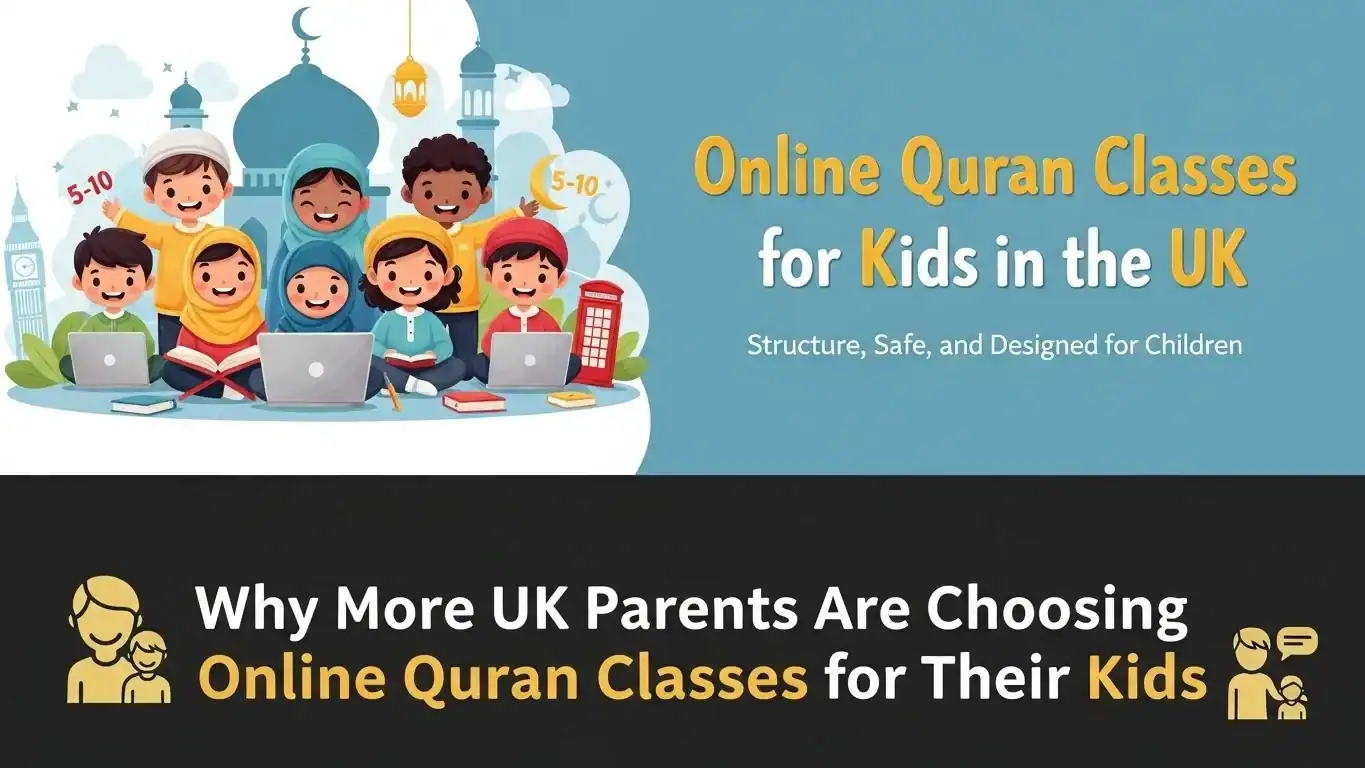Introduction
Ramadan is a month of mercy and forgiveness, a golden opportunity for transformation and drawing closer to Allah.
It is not just about abstaining from food and drink but a spiritual journey that reshapes our priorities and offers a chance for faith and moral growth.
What makes this month so special? And how can we make the most of it for true change in our lives? Discover the significance of Ramadan and the best ways to utilize it!
10 Importance of Ramadan: An In-Depth Analysis
1. A Month of Revelation of the Quran
Ramadan holds immense significance as the month in which the Quran was revealed to Prophet Muhammad (peace be upon him).
The Quran is the ultimate guide for humanity, and its revelation during Ramadan highlights the importance of this month.
Quranic Reference:
The month of Ramadan [is that] in which was revealed the Quran, a guidance for the people and clear proofs of guidance and criterion. (Quran 2:185)
Hadith Reference:
The Prophet (peace be upon him) said, “The Quran was revealed in Ramadan, and so were the Torah, the Psalms, and the Gospel.” (Sahih Bukhari)
2. Fasting as an Act of Worship and Taqwa (God-Consciousness)
Fasting during Ramadan is one of the Five Pillars of Islam and is obligatory for every able Muslim. It is not merely abstaining from food and drink but also a means of developing taqwa (consciousness of Allah).
Quranic Reference:
يَـٰٓأَيُّهَا ٱلَّذِينَ ءَامَنُوا۟ كُتِبَ عَلَيْكُمُ ٱلصِّيَامُ كَمَا كُتِبَ عَلَى ٱلَّذِينَ مِن قَبْلِكُمْ لَعَلَّكُمْ تَتَّقُونَ ١٨٣
“O you who have believed, decreed upon you is fasting as it was decreed upon those before you that you may become righteous.”
(Quran 2:183)
Hadith Reference:
The Prophet (peace be upon him) said, “Whoever fasts Ramadan out of faith and hope for reward, his previous sins will be forgiven.” (Sahih Bukhari and Muslim)
3. A Time for Spiritual Reflection and Self-Purification
Ramadan provides an opportunity for Muslims to reflect on their lives, seek forgiveness, and purify their hearts and souls.
It is a time to detach from worldly distractions and focus on spiritual growth.
Quranic Reference:
“Indeed, Allah loves those who are constantly repentant and loves those who purify themselves.”
(Quran 2:222)
Hadith Reference:
The Prophet (peace be upon him) said, “When Ramadan enters, the gates of Paradise are opened, the gates of Hellfire are closed, and the devils are chained.”
(Sahih Bukhari)
4. Increased Rewards for Good Deeds
During Ramadan, the rewards for good deeds are multiplied.
This encourages Muslims to engage in acts of charity, prayer, and kindness.
Hadith Reference:
The Prophet (peace be upon him) said, “Whoever draws near to Allah during Ramadan with a good deed will be like one who performed an obligatory act in other times, and whoever performs an obligatory act will be like one who performed seventy obligatory acts in other times.”
(Sahih Ibn Khuzaymah)
5. Laylatul Qadr (The Night of Decree)
Laylatul Qadr, or the Night of Decree, is one of the most blessed nights of the year. It is better than a thousand months, and worship during this night holds immense reward.
Quranic Reference:
إِنَّآ أَنزَلْنَـٰهُ فِى لَيْلَةِ ٱلْقَدْرِ ١
“Indeed, We sent the Quran down during the Night of Decree. And what can make you know what is the Night of Decree? The Night of Decree is better than a thousand months.” (Quran 97:1-3)
Hadith Reference:
The Prophet (peace be upon him) said, “Whoever stands in prayer during Laylatul Qadr out of faith and hope for reward, his previous sins will be forgiven.” (Sahih Bukhari)
6. Strengthening Community Bonds
Ramadan fosters a sense of community and unity among Muslims.
The shared experience of fasting, Taraweeh prayers, and Iftar gatherings strengthens bonds and promotes brotherhood.
Hadith Reference:
The Prophet (peace be upon him) said, “Whoever provides food for a fasting person to break their fast will have a reward like theirs, without diminishing the reward of the fasting person.” (Sunan Ibn Majah)
7. Developing Empathy for the Less Fortunate
Fasting teaches Muslims empathy for those who are less fortunate and experience hunger and poverty daily.
It encourages generosity and charity.
Quranic Reference:
“And they give food in spite of love for it to the needy, the orphan, and the captive, [saying], ‘We feed you only for the countenance of Allah. We wish not from you reward or gratitude.’”
(Quran 76:8-9)
Hadith Reference:
The Prophet (peace be upon him) said, “The best charity is that given in Ramadan.”
(Sunan Tirmidhi)
8. Forgiveness of Sins
Ramadan is a time for seeking forgiveness and repentance. Fasting and sincere worship during this month can lead to the expiation of past sins.
Hadith Reference:
The Prophet (peace be upon him) said, “Whoever fasts Ramadan out of faith and hope for reward, his previous sins will be forgiven.”
(Sahih Bukhari and Muslim)
9. A Time for Increased Prayer and Supplication
Muslims are encouraged to increase their prayers, recitation of the Quran, and supplications during Ramadan.
Taraweeh prayers are a special feature of this month.
Quranic Reference:
“And when My servants ask you concerning Me, indeed I am near. I respond to the invocation of the supplicant when he calls upon Me.”
(Quran 2:186)
Hadith Reference:
The Prophet (peace be upon him) said, “The prayer of a fasting person at the time of breaking fast is never rejected.” (Sunan Ibn Majah)
10. Preparation for the Rest of the Year
Ramadan serves as a spiritual training ground, equipping Muslims with the discipline, patience, and piety needed to face the challenges of the rest of the year.
Quranic Reference:
“Indeed, Allah will not change the condition of a people until they change what is in themselves.” (Quran 13:11)
Hadith Reference:
The Prophet (peace be upon him) said, “The strong believer is better and more beloved to Allah than the weak believer, while there is good in both.” (Sahih Muslim)
How to Invest Ramadan in Self-Development?
With the arrival of the blessed month of Ramadan, we are presented with a renewed opportunity to return to Allah, purify our souls from burdensome sins, and embrace a fresh start.
It is a season of worship, devotion, and revitalized determination.
How can you make the most of these sacred days, and how can you emerge from Ramadan transformed?
How to Utilize Your Time in Ramadan?
From the very first day of Ramadan, strive to make the most of every moment in these blessed days.
As the Prophet ﷺ said:
“When Ramadan comes, the gates of Paradise are opened, the gates of Hell are closed, and the devils are chained.”
[Agreed upon]
Thus, it is essential to invest your time in Ramadan in meaningful ways that benefit you both in this world and the Hereafter.
Acts of Worship in Ramadan
The Prophet ﷺ said:
“Whoever stands in prayer during Ramadan out of faith and seeking reward, his past sins will be forgiven.
And whoever stands in prayer on Laylatul Qadr out of faith and seeking reward, his past sins will be forgiven.”
[Sunan An-Nasa’i – 2207]
Do not deprive yourself of this great reward and strive for forgiveness.
Here are some of the best acts of worship in Ramadan:
1. Performing Extra Prayers, Remembrance, and Supplication
Strengthen your relationship with Allah by consistently performing obligatory prayers, engaging in voluntary prayers, and frequently remembering and supplicating to Him.
2. Reciting the Qur’an with Reflection and Understanding
Allah says:
“The month of Ramadan in which was revealed the Qur’an, a guidance for the people and clear proofs of guidance and criterion.”
[Al-Baqarah: 185]
Make it a habit to recite and reflect upon the Qur’an daily.
As the Prophet ﷺ said:
“Whoever recites a letter from the Book of Allah, he will receive a reward, and the reward will be multiplied by ten.”
[Tirmidhi]
Improving Character in Ramadan:
Ramadan is an excellent opportunity to work on self-improvement by abandoning bad habits and cultivating good ones:
1. Patience
Ramadan teaches patience in three key ways:
- Patience in obedience: Strengthening discipline through worship.
- Patience in avoiding sin: Purifying the heart from wrongdoings.
- Patience in hardships: Enduring fasting and trusting in Allah’s decree.
2. Charity
The Prophet ﷺ said:
“The best charity is charity given in Ramadan.” [Hadith by Anas]
Increase your charitable acts, whether through donations, feeding the needy, or acts of kindness.
3. Maintaining Family Ties and Forgiveness
Ramadan is a time to mend broken relationships. Strive to reconnect with family members and promote reconciliation among those who are estranged.
4. Providing Iftar to Fasting Individuals
The Prophet ﷺ said:
“Whoever gives Iftar to a fasting person will have a reward similar to his, without reducing the fasting person’s reward.” [Sunan Ibn Majah – 1746]
Seeking Knowledge in Ramadan
Take advantage of Ramadan’s spiritual atmosphere by increasing your knowledge through:
- Attending religious lectures and Islamic teachings.
- Reading books on Islamic history, the lives of scholars, and self-improvement.
- Learning new skills that benefit your personal or professional growth.
Maintaining Health During Ramadan
While Ramadan is a time of devotion, it is also an opportunity to adopt a healthier lifestyle:
1. Following a Healthy Diet
- Reduce sugar and unhealthy fats, especially during Iftar.
- Consume fruits and vegetables for essential vitamins and fiber.
- Drink plenty of water between Iftar and Suhoor to stay hydrated.
- Avoid fried and processed foods that contain harmful fats.
2. Exercising
Engage in light physical activities such as walking after Fajr or before Iftar to maintain fitness and mental clarity.
How to Implement These Tips for Personal Growth?
Ramadan is a gateway to transformation. To maximize its benefits, follow these practical steps:
-
Set Clear Goals:
Plan ahead for Ramadan by outlining specific objectives—whether spiritual, ethical, or intellectual. Break them down into achievable daily tasks.
-
Allocate Time for Worship and Self-Improvement:
For example:
- Read Qur’an after Fajr.
- Spend time in remembrance and supplication after Asr.
- Dedicate an hour to learning or exercising daily.
Seek Allah’s Help and Commit to Long-Term Change:
Remember that success comes through Allah’s guidance. Pray for strength and persistence, ensuring that the positive habits you develop in Ramadan continue beyond the month.
By following these steps, Ramadan can become not just a temporary spiritual boost, but a turning point for lasting self-improvement.
Conclusion
Ramadan is a golden opportunity for transformation, spiritual growth, and self-improvement. Make the most of these blessed days by strengthening your connection with Allah, refining your character, and expanding your knowledge. If you seek to learn the Quran, master the Arabic language, and deepen your understanding of Islamic studies, Quranic mind Academy, offers a distinguished learning environment with expert instructors. Join us today and embark on your journey of Quranic understanding and reflection! 🌙📖



